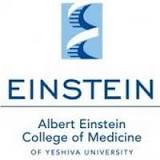Effect of Treating Sleep Disorder Breathing in Patients With Resistant Hypertension
| Status: | Archived |
|---|---|
| Conditions: | High Blood Pressure (Hypertension), Insomnia Sleep Studies, Pulmonary |
| Therapuetic Areas: | Cardiology / Vascular Diseases, Psychiatry / Psychology, Pulmonary / Respiratory Diseases |
| Healthy: | No |
| Age Range: | Any |
| Updated: | 7/1/2011 |
| Start Date: | May 2009 |
| End Date: | May 2010 |
Effect of Treating Sleep Disorder Breathing Therapy in Patients With Resistant Hypertension
The investigators would like to investigate the effects of treating sleep apnea with a
positive airway pressure device, either continuous (titrated) versus auto titrated on the
control of blood pressure in patients with Resistant Hypertension.
One of the major cause and contributor to stroke, myocardial infarction, heart disease, and
kidney disease is high blood pressure. Traditional approaches to control of hypertension
(HTN) have mostly included pharmaceuticals targeting different mechanisms that contribute to
HTN. However, adequate control of Blood pressure continues to remain a major problem.
Sleep Apnea is currently being recognized as a modifiable risk factor for resistant HTN.
Sleep disordered breathing represents states of increased sympathetic drive and vagal tone
withdrawal, along with significant episodic hypoxia. There is increasing evidence that sleep
apnea is highly prevalent in subjects with hypertension and may be a frequent cause of
drug-resistant hypertension.
We propose that we compare strategies for treating subjects with Resistant Hypertension who
have SDB as detected by ambulatory multi somnogram and treat subjects using:
1. Ambulatory Autotitrating Positive Airway Pressure (APAP) plus Standard medical therapy
OR
2. Traditional Polysomnogram and Traditional PSG guided titration of Continuous Positive
Airway Pressure (CPAP) plus Standard medical therapy
Our hypothesis is that in subjects with Resistant HTN, who have SDB, using the treatment
approach of ambulatory multisomnography for testing and then treating with APAP will be
noninferior to the traditional polysomnography plus CPAP approach in the amount of reduction
of mean systolic and diastolic 24 hour ambulatory blood pressure, when treated for 90 days.
We found this trial at
1
site
Albert Einstein College of Medicine The Albert Einstein College of Medicine of Yeshiva University is...
Click here to add this to my saved trials
